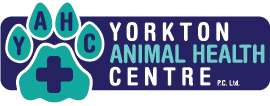Library
-
Nose Bleeds (Epistaxis) in dogs can be extremely unsettling for the pet owner. Most acute (sudden) nosebleeds are caused by simple trauma or by upper respiratory tract infections. This handout discusses nosebleeds in dogs, the various causes of this condition, first aid recommendations and possible testing to find the root cause of the problem.
-
The Nova Scotia Duck Tolling Retriever, affectionately called a Toller by her fans, is a recent addition to American Kennel Club activities. A high-energy dog, the are affectionate and outgoing.
-
A nutraceutical is a food or food product that reportedly provides health and/or medical benefits. In addition to diet modifications, exercise, weight loss, and medications, joint support nutraceuticals are also helpful in an osteoarthritis management program. Nutraceuticals are not subjected to the same testing and regulation as pharmaceuticals. Your veterinarian can advise you on products that have been evaluated and have yielded positive effects.
-
A nutraceutical is a food or food product that reportedly provides health and medical benefits. Specific nutraceuticals are commonly used in the management of osteoarthritis in dogs. Because nutraceuticals are not subjected to the same testing and regulation as pharmaceuticals, it is always best to consult your veterinarian before giving any to your dog.
-
Dogs are omnivores meaning that, under normal circumstances, dogs can meet their nutritional needs by eating a combination of plant and animal foods. Selecting a dog food can be a challenging task. Feeding your dog a proper diet for their life stage is one of the most important aspects to help keep them at optimal health. Your veterinary health care team can help you make good-quality diet choices and determine the correct number of calories your dog needs in a day.
-
Chronic kidney disease is frequently diagnosed in aging dogs. Nutrition plays an important role in managing CKD in dogs. Prescription diets for dogs with CKD are developed to support kidney function while maintaining body condition. A kidney support diet contains less protein, sodium, and phosphorus, and increased omega-3 fatty acids. Your veterinarian will help you choose an appropriate formulation for your dog which will slow the progression of this disease, contributing to both life expectancy and quality of life.
-
Colitis is a fairly common problem in dogs manifesting as diarrhea. Dealing with colitis may boil down to working with your veterinarian to find a nutrient profile that allows your dog's gastrointestinal system to function as normally as possible. A nutrient profile which contains a high quality, high digestibility protein, low to moderate fat content, and high digestibility carbohydrates. Fiber may also play a role to benefit the colon of dogs with chronic colitis. Work with your veterinarian to assess your dog's clinical and nutritional history, create a nutritional plan, and then evaluate the success of the plan.
-
Nutritional management can be an effective strategy in the treatment of liver disease when used in combination with appropriate medical therapy. The goals of nutritional management of liver disease focus on controlling the clinical signs as opposed to targeting the underlying cause. Your veterinarian will work with you to help you make the best decisions on behalf of your dog with liver disease.
-
Over 60% of cats in North America are either overweight or obese, so paying attention to the balance between activity and calorie intake is important. Nutrient formulation and portion control are the two most important aspects of weight control. Once you have chosen a formula and have calculated a reasonable daily portion based on calorie density, the best way to stay on track and prevent unwanted weight gain is to combine portion control with regular, formal weigh-ins.
-
Over 60% of dogs in North America are either overweight or obese, so paying attention to the balance between activity and calorie intake is important. Nutrient formulation and portion control are the two most important aspects of weight control. Once you have chosen a formula and have calculated a reasonable daily portion based on calorie density, the best way to stay on track and prevent unwanted weight gain is to combine portion control with regular, formal weigh-ins.


